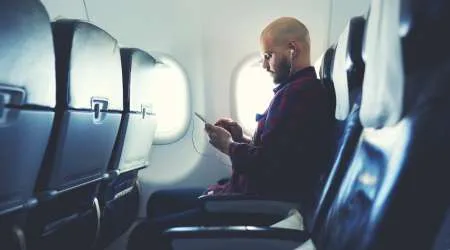Four things Virgin and Qantas must do so in-flight internet succeeds


How to maximise in-flight Wi-Fi for fun and profit.
Virgin Australia yesterday said that it will introduce in-flight Internet on domestic and international flights in 2017. Qantas had already announced similar plans earlier in the year, so 2017 will be the year that going online when you go into the sky will become a regular habit for Australian flyers.
I'm a big fan of in-flight Internet, and use it regularly when I'm in the US and anywhere else that it's offered; you can see exactly which airlines offer it in our comprehensive roundup of global airlines with in-flight Internet. I'm looking forward to having the option in Australia as well. (Reminder: if you don't like the idea, no-one is going to force you to use it.)
But if our two biggest airlines want the introduction to be successful, rather than a constant source of unpleasant social media chatter, they need to stick to the following simple rules.
Don't make the pricing ridiculous. There's no way that either airline is going to make internet access a free service, and that's understandable; it's an expensive feature to introduce. But charging an insane amount of money will just see people choose not to pay, especially on shorter-haul flights. I'd suggest a sum under $10 for flights under 90 minutes, under $15 for longer trips, and an option for a monthly all-you-can-eat subscription for regular users. If either airline wants to reward business class passengers with free access, they can do that by handing out voucher codes on board.
Ban the use of voice and video calling services. This might seem obvious, and most carriers internationally do it, but it's worth reinforcing. Having to spend the whole flight listening to someone on a WhatsApp or Skype call is nobody's idea of fun.
Make sure sign-in works on mobile devices. You'd hope this point wouldn't need making in 2017, but some of the systems I've used in the US don't seem to have heard of responsive design in any way. Many people are going to want access on smartphones and tablets, not laptops, and the system needs to be designed to respect that.
Don't sell different speed tiers A handful of airlines around the world offer a choice of speeds in the air, with a premium if you want something fast enough to stream video. Given the vagaries of satellite access, this is frankly a waste of time and only likely to cause annoyance.
Get that right, and we're good. Roll on 2017!
Angus Kidman's Findings column looks at new developments and research that help you save money, make wise decisions and enjoy your life more. It appears Monday through Friday on finder.com.au.
Latest news headlines
- Paris Olympics swimming live: Full schedule 2024
- Olympics Opening Ceremony: How to watch live in Australia
- The 10 worst Olympic Games mascots, ranked
- Paris Olympic Games 2024: Full list of sports, broadcast and more
- Big change coming to Amazon Prime Video (and it’s not a price hike)
Picture: Shutterstock
